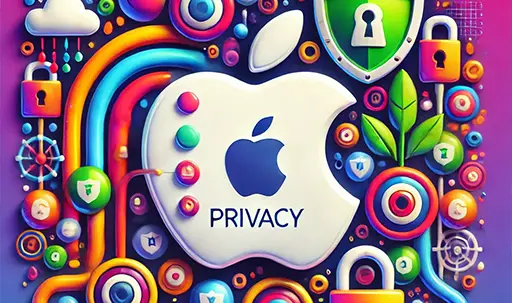A Deeper Look at Smartphone Security Concerns
- Discover how Apple mixes humor and privacy in its Chinese ad campaign.
- Understand the growing concerns over personal data leaks on Android phones in China.
- Learn how Apple’s privacy features aim to protect user data.
- Explore why relying on tools like the Incognito Browser can offer enhanced online privacy.
- Get insights into Apple’s strategy and its implications amid rising competition from Chinese smartphone makers.
When Comedy Meets Privacy
In a move that combines humor with a serious message, Apple has launched a new advertising campaign targeting Chinese consumers. The campaign, featuring popular comedian Yue Yunpeng, aims to highlight the strong privacy and security functions of Apple’s iPhones. This comes at a time when concerns over personal data leaks on Android phones are mounting in China.
In one of the skits released by Apple, Yue forgets his password during a comedic performance but is saved by an Apple employee who introduces him to the iPhone’s automatically generated password feature, safeguarded by Face ID. Another video highlights Safari’s private browsing mode, designed to stop websites from tracking or identifying users, further safeguarding their privacy.
The videos quickly went viral on Chinese social media, drawing over 110 million views and sparking thousands of discussions. Many netizens praised the creative collaboration between Apple and Yue Yunpeng, and it became one of the top trending topics on Weibo.
Privacy Concerns in China
Apple’s campaign comes at a pivotal time. Chinese consumers are increasingly wary of data security issues amid tighter regulations on how businesses handle user data. Adding to the landscape, Apple has faced challenges concerning its privacy measures. iCloud account leaks have resulted in some Chinese iPhone users receiving spam via iMessage.
Despite these issues, Apple touts its commitment to privacy. Last month, the company emphasized that even as it integrates generative artificial intelligence (AI) into its devices, it will continue to prioritize user privacy. Apple promises that most AI computing will occur on the device itself, while more complex problems will be handled by its Private Cloud Compute system.
The Role of Incognito Browsing in Enhancing Privacy
While corporate giants like Apple strive to secure user data through advanced mechanisms, individual users can take additional measures to ensure their online activities remain private. One simple yet effective method is using the Incognito Browser app for personal browsing. Unlike standard browsers, incognito mode ensures that your activities aren’t traced or recorded, offering an extra layer of security against intrusive tracking technologies.
Understanding the meaning of incognito mode and knowing how to use incognito browsing mode can make a significant difference in protecting your online privacy. Whether you need to open an incognito tab for a quick search or want to keep all your internet activities confidential, using tools like Incognito Browser offers robust privacy benefits compared to regular browsers.
Apple’s Competitive Landscape
Apple isn’t new to leveraging star power to highlight its privacy features. Last year, they launched a video starring martial arts icon Donnie Yen Ji-dan, who theatrically defended iPhone users’ privacy from intruders with kicks and punches.
However, despite these efforts, Apple has been losing ground in the Chinese market. After leading smartphone sales in China last year’s fourth quarter, Apple’s sales dipped significantly due to rising competition from local rivals like Huawei and Vivo. According to Counterpoint Research, Apple dropped to third place in the market amid increasing pressures from Chinese brands.
The Importance of Privacy Measures in Tech
As tech companies vie for dominance, internal and external pressures shape their approach to privacy and security features. Apple’s initiative is part of its broader strategy to reassure customers about data safety while competing against robust local competitors. However, even tech-savvy users might find themselves susceptible if their devices’ basic features are compromised.
That’s why it’s critical for consumers not only to trust but also verify these measures. Utilizing private browsing options like those offered by the Incognito Browser allows users to maintain an additional safeguard over their online footprints. It provides peace of mind knowing that private browsing sessions are indeed private and free from potential leaks or unauthorized access.
Navigating the Future
As we look towards the future where AI becomes more integrated into our daily lives, ensuring robust privacy protections remains paramount. Tools like Face ID and Safari’s private browsing are steps in the right direction for companies like Apple. Yet for users who want full control over their online presence, adopting easy-to-use solutions like the Incognito Browser app can make all the difference.
While corporations are under pressure to maintain data privacy standards, taking individual responsibility for one’s own digital security cannot be overstated. By utilizing every available tool—from Apple’s built-in features to dedicated privacy apps like Incognito Browser—users can stay ahead in protecting their personal information in an evolving digital landscape marked by both impressive advancements and significant risks.



